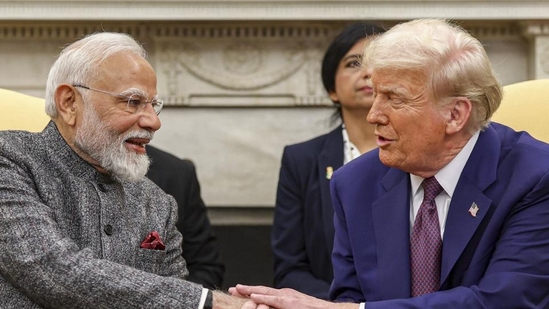In a significant move that could reshape US-India trade relations, former US President Donald Trump has announced a 26% “Discounted Reciprocal Tariff” on Indian imports. This bold policy shift, branded as a part of his larger “Trump Tariff” strategy, aims to establish fairer trade terms with India. Let’s explore what this means, why it matters, and how it could impact businesses and global markets.
What Is a Tariff?
A tariff is a tax imposed by a country on imported goods. It is used to regulate trade, protect domestic industries, or respond to unfair trade practices. US tariffs have historically been used as leverage in trade negotiations with major economies, including India.
Understanding Reciprocal Tariffs
A reciprocal tariff is a trade policy where a country imposes tariffs on imports equivalent to the duties levied by another country. Trump’s concept of “reciprocal tariffs” was introduced as a way to ensure the US is not disadvantaged in global trade deals.
Trump’s Justification for the 26% Tariff on India
Trump has long been vocal about what he calls “unfair trade practices” by various countries, including India. The US tariffs on India have been a subject of debate, with Trump earlier criticizing India for imposing higher tariffs on American goods.
In his recent tariff announcement, Trump stated:
“We are ensuring fairness in global trade. India has long benefited from lower tariffs while imposing high duties on our products. This 26% discounted reciprocal tariff levels the playing field.”
How Does This Impact India?
1. Effect on Indian Exports
India exports several key goods to the US, including pharmaceuticals, textiles, and IT services. A 26% tariff on Indian imports could make these products more expensive for American consumers, potentially reducing demand.
2. Impact on US Companies Operating in India
Major US companies operating in India, including tech giants and manufacturers, may feel the heat. India could retaliate by imposing tariffs on US goods, impacting industries like electronics, automobiles, and agriculture.
3. Global Market Reactions
The global market today has already shown volatility in response to Trump’s tariff policies. NASDAQ futures live and Wall Street indicators reflected uncertainty, with investors concerned about a potential trade war.
Political and Economic Reactions
US Perspective
The policy aligns with Trump’s broader “America First” approach, emphasizing reduced trade deficits and increased domestic production. The White House has hinted at more such measures to counteract what Trump calls “imbalanced trade relations”.
India’s Response
The India news cycle has been abuzz with reactions from government officials and business leaders. India has historically responded to US tariff increases with its own countermeasures. Experts believe India might introduce tariffs on US goods as a counteraction, affecting bilateral trade.
Canada & Other Global Players
Other nations, including Canada, are watching closely. Similar reciprocal tariff strategies could be applied in future trade negotiations.
What’s Next?
Will India Retaliate? Given past responses, it’s likely India will introduce counter tariffs.
Effect on Consumer Prices: If tariffs increase, American consumers may see price hikes on Indian goods.
Global Trade Implications: Could this policy set a precedent for other countries to impose similar tariffs?
Final Thoughts
Trump’s reciprocal tariffs on India mark a crucial moment in international trade. Whether this leads to fairer trade or escalates tensions will depend on how both countries navigate this policy shift. Businesses and investors should stay informed as the situation unfolds.
Additionally, emerging technology and education platforms like Vraiverse are playing a key role in adapting to changing global trade dynamics. With a focus on VR, AI, and future-ready skills, Vraiverse is preparing the next generation for a technology-driven world. As trade policies shift, skill development in AI, blockchain, and immersive tech becomes even more critical for sustaining growth in global markets.
What Do You Think?
Do you believe this new US tariff on India is justified? Will India counter with its own tariffs on US goods? Share your thoughts in the comments below!


















